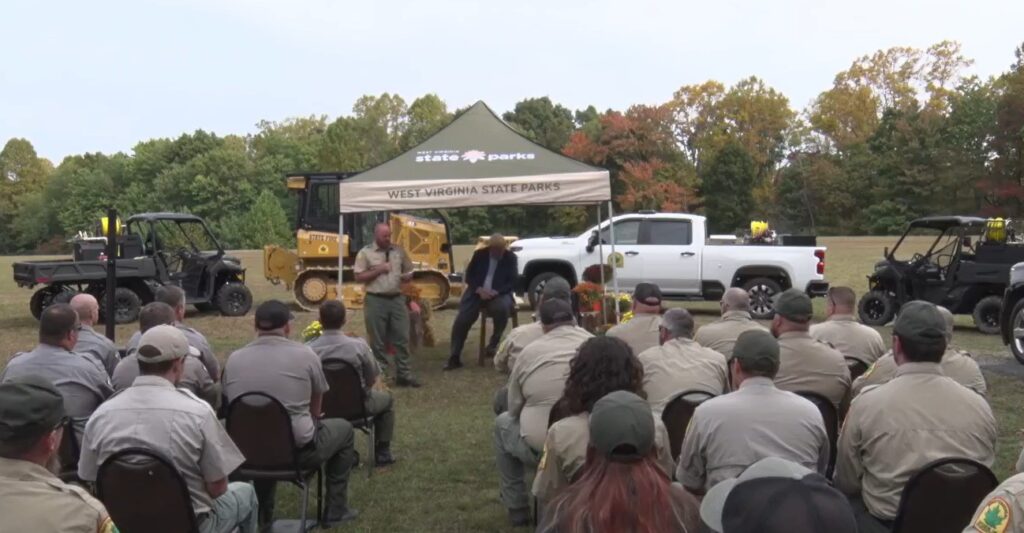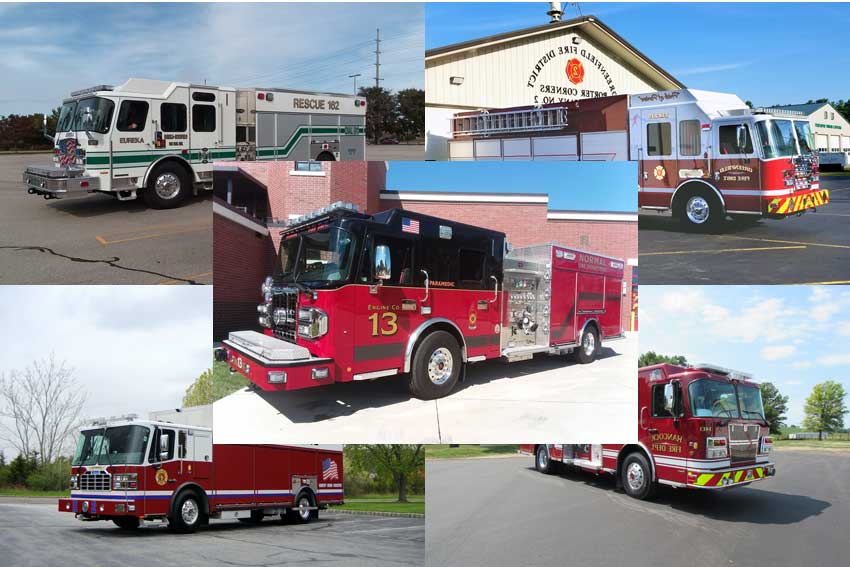
By Ed Ballam
For the past four years, the REV Group has acquired well respected names in the fire service including E-ONE, KME, and Ferrara, and in February, the company added the assets of Spartan, including Smeal and Ladder Tower Company.
And, big changes continue with the REV Group. In March, Kent Tyler, a fire industry veteran, was named president of REV Fire Group.
Tyler promises the consolidation of the diverse brands will not mean the homogenization of products. Quite the opposite. Each of the brands will remain autonomous and valued for their strategic and unique positions in the marketplace. “I can tell you, there is no REV fire truck,” Tyler says. “Anyone who knows me and knows how I have worked with different sales channels in the past knows there is nothing more important than having a strong dealer representing your brands in the marketplace. It’s not just about building a great fire truck; it’s about servicing that truck. It’s about making sure every department that buys any of our apparatus has somebody to take care of them with service or warranty issues. That’s critically important to me and, I can assure you, it’s critically important to these companies.”
Related Content
- REV Fire Group Announces Exclusive Partnership for Industry-Leading Clean Cab Technology
- REV Group, Inc. Completes Acquisition of Spartan Emergency Response
- REV Group Appoints Kent Tyler as New Fire Division President
REV STRUCTURE
Tyler is taking the reins to part of an organization that started in November 2015 when it changed its name from Allied Specialty Vehicles (ASV) to REV Group. ASV formed from the merger of four companies owned by American Industrial Partners (AIP), a New York City-based private equity firm with a variety of holdings, including E-ONE, based in Ocala, Florida.
Tyler’s involvement with the company dates back to 1997 when he worked with Collins Industries, a specialty vehicle manufacturer making school buses, ambulances, and terminal trucks. In 2006, Collins Industries was purchased by AIP. At the time of that acquisition, Tyler was the head of sales and marketing for Collins Industries. In 2007, he became president of Collins Bus Corporation, a position he held until 2012. In the intervening years, AIP bought Federal Signal in 2008 and acquired E-ONE.
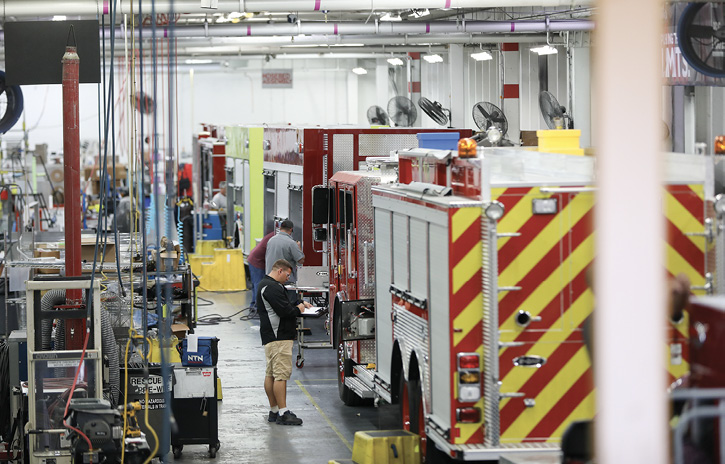
1 E-ONE, headquartered in Ocala, Florida, is the genesis of the REV Fire Group, as the first apparatus builder in the portfolio. E-ONE builds a full line of apparatus from brush trucks and rescue vehicles to pumpers and tankers to aerials and aircraft rescue and firefighting vehicles. (Photos courtesy of the REV Fire Group.)
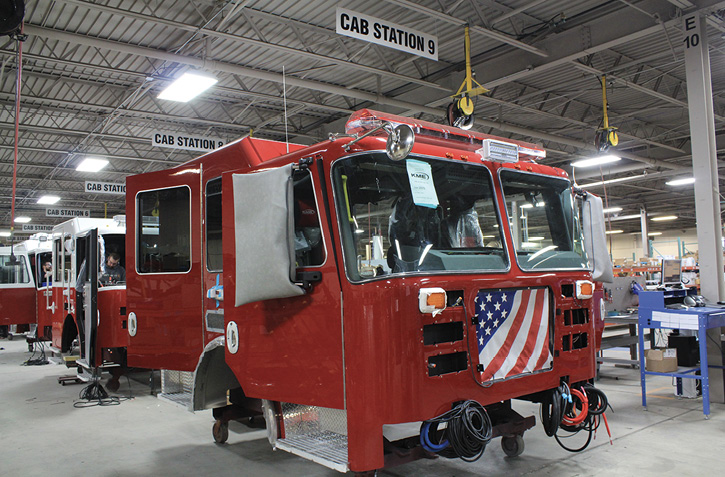
2 KME Fire Apparatus, one of the manufacturers in the REV Fire Group, has facilities in Nesquehoning, Pennsylvania, where cabs and chassis are built as well as pumpers and other apparatus. A second plant is located in Roanoke, Virginia, where KME aerials are built.
In 2012, Tyler became president of E-ONE, a position he held for two years, until REV bought all of the Thor commercial bus companies. At that time, he became president and CEO for the bus and mobility division. In 2016, he left the REV Group and was involved with United Safety & Survivability Corporation (USSC), headquartered in Exton, PA. “When I was approached with the opportunity to come back to REV, to the Fire Group, I was excited about not only the opportunity but getting back into such an incredible industry,” Tyler says.
Now, Tyler is in charge of a division that employs about 3,100 people of the about 8,000 total employees of the REV Group, which has essentially four divisions: the fire truck division; the ambulance division; the commercial vehicles division, which is primarily shuttle buses, school buses, and transportation buses; and the recreational vehicle division.
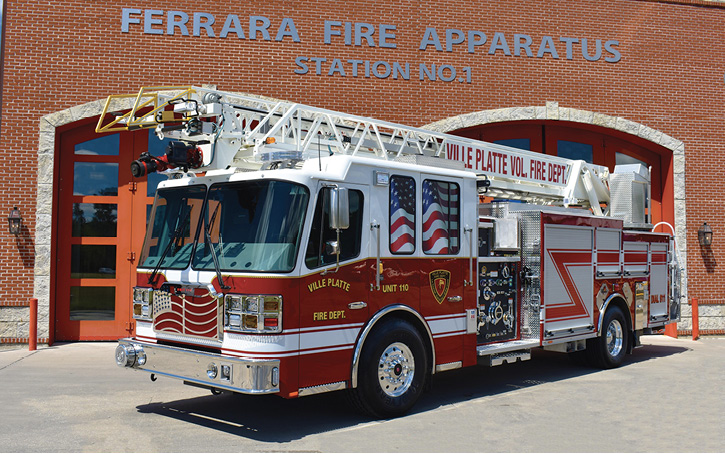
3 In 2017, Ferrara Fire Apparatus, based in Holden, Louisiana, became the second fire apparatus asset purchased by the REV Fire Group.
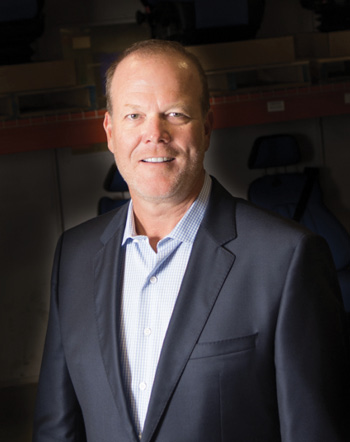
4 Kent Tyler, president, the REV Fire Group.
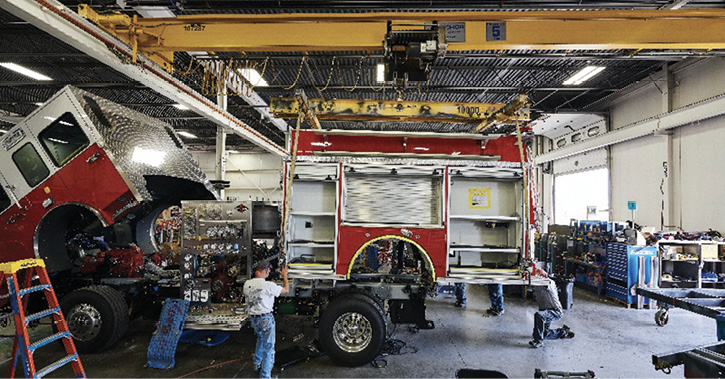
5 Brandon, South Dakota, is the home of Spartan ER, acquired by the REV Fire Group in February.
In the Fire Group, there are nine significant manufacturing plants including two in Ocala, Florida, where the E-ONE brand is manufactured, and a third plant in Hamburg, New York, where stainless steel E-ONE products are made; one in Nesquehoning, Pennsylvania, where KME apparatus are built and a second plant in Roanoke, Virginia, where KME aerials are built; a plant in Ephrata, Pennsylvania, for Ladder Tower Company; Brandon, South Dakota, for Spartan pumpers; Snyder, Nebraska, for Smeal apparatus; Holden, Louisiana, for Ferrara apparatus; and Charlotte, Michigan, where Spartan cabs and chassis are built.
All the brands within the REV Fire Group account for 113 dealers nationwide. Additionally, Spartan cabs and chassis are sold to about 40 smaller apparatus builders.
REV FIRE GROUP HISTORY
The building of the REV fire division advanced in 2016 when KME came to market and REV acquired the family-owned business. KME, at the time, had strong market share in California, and the company was in the process of finishing the first round of pumpers for New York City. It was a strong addition to the REV Group portfolio.
The next step came in 2017 when the assets of Ferrara Fire Apparatus, another family-owned business, became available. The same market analysis was used in the decision to purchase Ferrara as KME. Staff with the REV Group determined it was a good fit as there was little overlap with the other two products. The three brands together, E-ONE, KME, and Ferrara, gave the REV Fire Group 84 fire truck dealers representing the three brands.
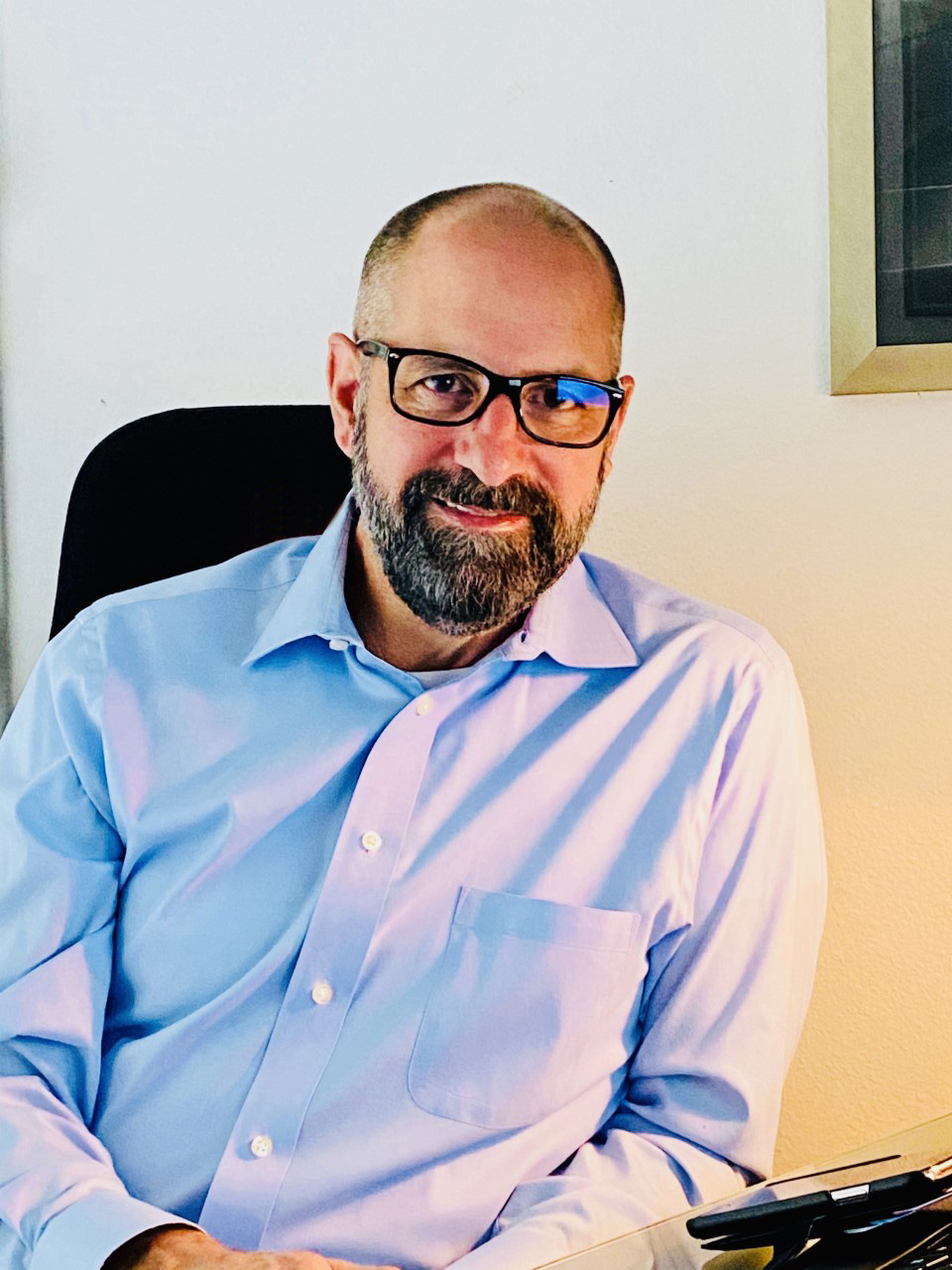
6 Mike Virnig, vice president of sales.
In 2019, the assets of Spartan ER, which included Smeal Fire Apparatus, became available, and the REV Group determined it made sense to bring another manufacturer into the mix. When asked about having six of the industry’s major apparatus manufacturers under one umbrella, Tyler says, “There is no question that we have some challenges ahead of us, but these are incredible brands. We’ve got an incredible dealer base—one of the largest in the industry—and I am excited about the opportunities that affords.”
SHARING BEST PRACTICES
One of the opportunities, Tyler says, is employing “best practices” at all of the major brands in the group. “There are opportunities to learn from one another.” Tyler says. “For instance, we can understand that, from a manufacturer’s side, just because one company is doing something a specific way and having success doesn’t mean another company would have the same result.”
While the sharing of the knowledge and best practices makes sense, from an efficiency perspective, it doesn’t mean that the brands’ unique identities should be altered, Tyler says. “It doesn’t change the fact that each of these brands are important,” he says. “Every one of these companies—Ferrara, KME, Smeal, E-ONE, Spartan—all build their trucks a little differently. They all have certain features and benefits that are important to their end users and to the fire departments.”
BUILDING EFFICIENCIES
Tyler says the REV Group will “always be looking for ways to be more efficient. We will always be looking for ways to become a better company, but it will never take the place of building the best quality products we can for our dealers and our customers,” Tyler says.
With that said, Tyler says he believes there are ways to improve on the entrepreneurial spirit many of the REV Fire Group family-owned businesses were built on. He says there are things like lean manufacturing that can help the different brands produce their products more efficiently and at a higher quality. “I think those are the kinds of things we are going to work on,” Tyler says, noting that there has to be a balance with delivering the trucks as quickly as possible with the realization that apparatus built by the REV Fire Group are highly customized. “These are custom trucks,” he says. “These are fully custom trucks, and they don’t just happen overnight.”
The REV Fire Group is blessed with a strong backlog of orders in its segments, but Tyler says he would like to see efficiencies employed to remedy that issue. “Getting the products out to the customers a little faster, a little quicker is certainly a priority of mine, and I am sure our dealers will appreciate hearing that,” Tyler says.
DEALERS
The REV Fire Group supports it dealers with a corporate-level staff member, Mike Virnig, who serves as vice president of sales. Having been a vehicle dealer for most of his professional career, Virnig says he knows firsthand the importance of the relationship between a customer and a dealer.
“If you are the dealer, go out and win the business,” Virnig says. “It should make no difference to you whether REV owns the other business or not. That’s really my core philosophy. Your responsibility is to sell your company and your brand, and don’t worry about all the rest of it. You can’t control it anyway. Worry about what you can control, and the rest will work itself out.”
Virnig says he sometimes finds himself acting as a referee between competing dealers and brands within the REV Fire Group. “I want my directors and regional managers to fight for their brands, and I am the referee when I need to be,” Virnig says. “What I won’t tolerate is negative selling. I won’t tolerate it with our competitors, and I won’t tolerate it within the group. If I even get a hint or see anything like a dealer taking a shot at another dealer, we step in and say, ‘Stop it.’ ”
By design, Virnig says there’s only a handful of people directly linked to the REV Fire Group with business cards and a direct link to the group, and he and Tyler are the only ones who have direct information on all the brands within the group. “We’re competing with each other in a healthy way,” Virnig says, adding that the REV Fire Group wants to celebrate the DNA that makes each brand unique. “We’re not telling Ferrara you’ve got to be more like E-ONE,” Virnig says. “We’re not telling KME to be more like Ferrara. You have a history. You have a dealer network that matches the DNA you’ve grown up with. We just want to celebrate that. We realize that cross pollinating brands doesn’t work.”
Virnig says that the goal and philosophy of the REV Fire Group are to “leave the brands alone and let them be successful on their own, competing in the marketplace that we compete in today.” As the acquisitions have been made, Virnig says he’s had to allay the fears of dealers worried that they may be closed or consolidated. “I tell them that makes no sense,” he says. “We just paid a lot of money for a company, and you are a dealer for that company. Why would we want to shrink the sales of that company by closing dealerships?”
CUSTOMER NEEDS
Virnig says each fire apparatus is “unique based on the customers’ needs,” and the customization and specifications need to be worked out with dealers to make sure the customers get what they want. “If it’s not ultimately what the customer wants, it just doesn’t go through the factory smoothly, and the customer is never really happy with it,” Virnig says. “It becomes a real problem for us. My goal is that the customer, the end user, buys the truck they want so they’re happy with it. That’s the ultimate goal.”
Taking away all the noise and making sure customers get the truck they want, not just because of lowest price, are Virnig’s job. “I can’t really drive business one way or the other, and I don’t really want to do that,” Virnig says. “I try to be as neutral as possible.”
One big advantage Virnig says has been achieved is making it easier for fire departments with large fleets to “cherry pick” the REV Fire Group brands, purchasing apparatus from the different family brands that best fit the departments’ needs. And, the REV Fire Group has made that a little easier by having some large departments deal directly with corporate-level staff to make sure they have the continuity of dealing with just one person over the multiple brands. But, for everyone else, it’s business as usual for fire truck purchases from any one of the six brands within the REV line up, Virnig says.
CURRENT EVENTS
Since Tyler has become head of the fire group, it’s anything but business as usual with a global pandemic. Because of the COVID-19 crisis, he still hadn’t been able to visit all the plants and meet many dealers some two months after taking the reins of the business. It’s something he regrets because of his personality and leadership style, but it is completely unavoidable.
Technology, however, has allowed him to carry on with some aspects of his work and get the job done. That same technology has helped firefighters and officers continue with the purchase of new apparatus. “As we go through this whole COVID crisis, we’ve been doing virtual inspections for trucks,” Tyler says. “Where normally the fire departments would come to the factory for inspections, now a lot of them are doing it virtually. We’re all learning through this process. There’s a lot that can be done through the help of technology to make sure we are meeting the customer’s expectations.”
UP FRONT PROCESS
Tyler says it’s the “up front process” he’d like the REV Fire Group to focus on to make sure customers and the dealers are all on the same page when it comes to purchasing. “We want to make sure we get it right up front and make sure the truck the fire department is spec’ing is the same truck we are building,” he says. “So, I really want to make sure we have robust processes up front because, once we do that, we will speed up the whole process, and departments will get their units faster.”
Tyler says technology can also help with the process by having virtual prebuild conferences that will save departments time and money from having to travel to the various plants around the country for meetings. “Anything we can do to help departments, from a budget standpoint, we want to be able to do,” Tyler says. “So, if we can use technology to save some of those visits to the factory, we obviously will work to do that. We don’t know what it’s going to look like, but during the current pandemic, there’s going to be a lot of municipal budgets that are going to be challenged. We need to be sensitive to that and work proactively to help our customers get their trucks.”
Tyler says technology also offers better communications all around. “For me, it’s important that we are constantly communicating to our dealers and our customers not only about the great products we have but also where they are with their trucks; where we are in the production process; and, when there are opportunities, to tell them about new features and benefits in the marketplace.”
Tyler says he’s thrilled to be back in the fire apparatus business, particularly with a strong company like the REV Group. “I love this industry,” Tyler says. “I am thrilled to be back. When I look at the breadth of products we have, there’s no question there’s not another company in the industry that can touch us from the amount of products we have and the categories we have, just from aerials to pumpers, you name it. We build pretty much everything that’s out there.”
As for the future, Tyler says the REV Fire Group has a wide array of products in the pipeline that will come to market when the time is right. “My goal is to continue to make us a better company and do everything I can to give our brands, our dedicated employees, and our dealers the ability to deliver the highest quality products to the heroes who serve their communities on a daily basis,” Tyler says. “We are building trucks that are [built] to do one thing and that’s to save people’s lives. Quite frankly, I can’t think of anything more important than that.”
ED BALLAM is the assistant chief of the Haverhill Corner (NH) Fire Department and a National Registered EMT. He is also a deputy forest fire warden for the New Hampshire Division of Forests and Lands. He has been a journalist for more than 35 years, working for a variety of publications, including employment as managing editor of a national fire service trade journal for more than a decade.

